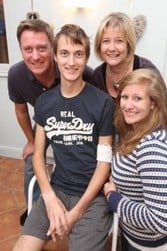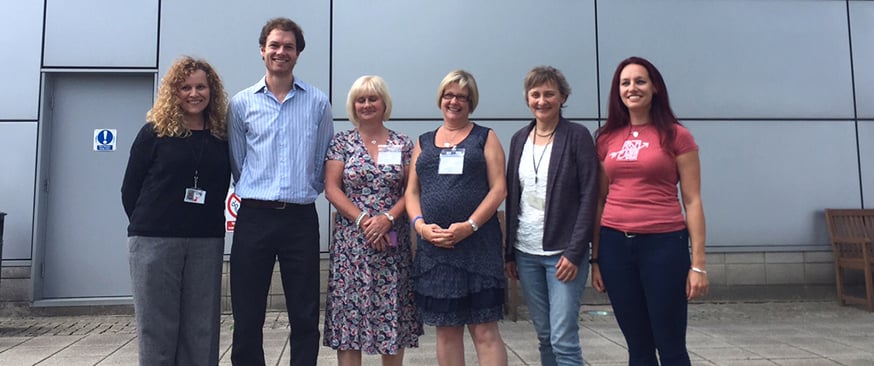DSRCT is a particularly aggressive type of sarcoma that occurs mostly in adolescents and young people. It is very difficult to treat and currently has a poor prognosis.
It was Tom’s wish to set up a charity and so his parents, Richard and Nikki, started the Foundation with a focus on projects that provide physical and emotional support, and research.
The Tom Bowdidge Foundation has pledged to give more than £400,000 towards funding research at the ICR. They are supporting a team guided by Professor Janet Shipley – one of the world-leading authorities on research into soft tissue sarcomas. Her team aims to find more effective and kinder treatments that target the specific molecular defects that drive the growth of these deadly tumours.
Making a real difference
Richard Bowdidge, Trustee and Founder of The Tom Bowdidge Foundation, says:

“To be able to work with the ICR is a really exciting opportunity for us and funding research into DSRCT is especially important: it is what Tom would have wanted.
“Cancer treatments for teenagers and young adults are often as aggressive as the cancers they are treating, so to be able support a research team that has the vision to make a real difference is a privilege.”
Richard and Nikki add: "If we can fund a research project that will develop better treatments, then we know we will be giving young people with cancer hope. We know that the research the ICR is carrying out is world leading so we at The Tom Bowdidge Foundation are proud to be a part of that success."
Through their continuing and generous support, Tom’s family and friends have significantly contributed to the efforts to build a better understanding of DSRCT and to improve the outlook for young people with sarcoma.
Professor Shipley says: “We’re extremely grateful for The Tom Bowdidge Foundation’s support, which will help drive forward our research so that ultimately we can improve the lives of young people with DSRCT and other sarcomas. Without funding from such charitable trusts, it would be very difficult for us to develop our research into these rare cancers.”
Learn more about Professor Shipley’s team.
